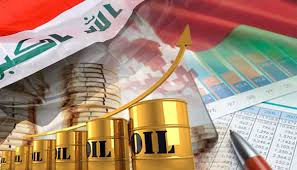Since the beginning of 2015 there have been reports that the three largest producers in the Organization of the Petroleum Exporting Countries, namely Saudi Arabia, Iraq and Iran, would increase their exports to record levels by end of year. This has happened for bothSaudi Arabia and Iraq and will likely occur with Iran once a nuclear deal is reached with the United States. The reasons differ of course, but the result will be the same: Either OPEC is effectively broken up, or more likely, Iraq and Iran will get their way.
In May the Iraqi Oil Ministry exported an average of 3.15 million barrels per day and has preparations to ship 3.25 million b/d in June, moving sharply toward a new all-time record in the coming months. This massive increase has only been matched by Saudi Arabia in recent times and shows Iraq is on the way to becoming possibly the world’s only swing producer in the next decade.
Iraq is currently exempt from production quotas by OPEC because of nearly two decades of underproduction brought on by war and sanctions. This will almost certainly change once Iraq hits 5 million b/d and possibly even before then. But unease in OPEC is already apparent because Iraq is increasing the supply of oil when prices are low and oversupplied, thereby further preventing a return to higher prices.
The country is suffering from a budget deficit and will continue to push for higher exports, arguing that the rest of OPEC should cut supply if it really wants to see higher prices. The quota exemption puts pressure on Saudi Arabia to not only tighten supply for the existing situation but to also find a way to offset bigger future increases by Iraq. This will most certainly lead to policy conflict in the near future and challenge Saudi Arabia’s domination of OPEC.
For its part Saudi Arabia has also reached record levels of export, shipping 7.9 million b/d in March. This is in response to a downturn in its economy that has caused it to use up some of its foreign reserves. Global oil supply increased in 2014 because of U.S. shale production and supply outstripping demand. When prices broke down last year Saudi Arabia forced OPEC to maintain current supply levels even though this maintained prices low. The decision was based on a desire to retain market share, so that shale would not control both price and share.
However, too much supply and still depressed prices are putting Saudi Arabia under immense pressure. Now that the kingdom has increased its own production other OPEC members will argue that it is responsible for low prices at the cost of harming others. Cynics will point to the fact that Saudi Arabia foresees Iran’s increased production and is deliberately weakening the market to damage Iran’s economy, which is much less resilient.
Iran’s oil exports have suffered for the past four years because of sanctions that have limited the number of foreign buyers and made the purchase mechanism increasingly complex and precarious. As such, it has lost market share and suffered an economic depression, leading to Iran’s call at OPEC’s meeting in December of last year for the group’s production ceiling to be lowered. Now the nuclear deal is almost completed, Iran expects sanctions to be removed and for it to return to high levels of export such as 3 million b/d and so it will move to ramp up production to record levels. This puts it on a political and economic collision course with OPEC.
The most recent OPEC meeting in Vienna saw no change in policy or quotas, with Saudi Arabia hoping that demand will soon pick up with the lower prices, but under pressure itself to see a return to higher prices. So 2015 is proving challenging for OPEC. However, 2016 will be one with real potential for conflict, with increasing Iraqi and Iranian production, Saudi Arabia at record levels, prices still under $80 (well under the $90 figure OPEC desires), and the oil glut continuing due to weak demand and oversupply by producers. Shale production will increase and will become more economical, China’s economy will continue to slow down, alternative energy sources such as solar power will make good progress, all putting pressure on the oil market in 2016 and the midterm.
For Iraq it will not matter so much as the country can do little about these dynamics and will continue to pump oil in increasing amounts. Baghdad will stand by and watch as other nations squabble inside OPEC and outside it. As for Iran it must challenge Saudi Arabia to cede some control of OPEC, perhaps by playing up the kingdom’s role in causing the weak market.
As far as cartels go OPEC has done remarkably well, managing to retain coherence and relevance for decades now. But the internal rivalries have increased in intensity, and the Middle East’s conflicts are threatening to expose the ruptures.
The European Union and the U.S. would certainly like to see the breakup of OPEC, as it will make it unlikely for prices to rise again quickly. However, OPEC’s members, including Saudi Arabia and Iran, will want to prevent that, so compromise must be found. Unfortunately there seems very little room for such compromise in the upcoming conflict in the organization and it may be that Saudi Arabia will have to yield some influence in order to keep OPEC together. No one benefits from chaos, and OPEC controls 40 percent of the world’s oil supply, so in the end the cartel will probably find a way of moving forward.
By Sajad Jiyad is an Iraq analyst and research fellow at the Iraqi Institute for Economic Reform, Baghdad. He can be followed on Twitter @SajadJiyad. He wrote this commentary for THE DAILY STAR.
Source: http://www.dailystar.com.lb/Opinion/Commentary/2015/Jun-10/301305-prepare-for-an-upcoming-conflict-in-opec.ashx








Comment here